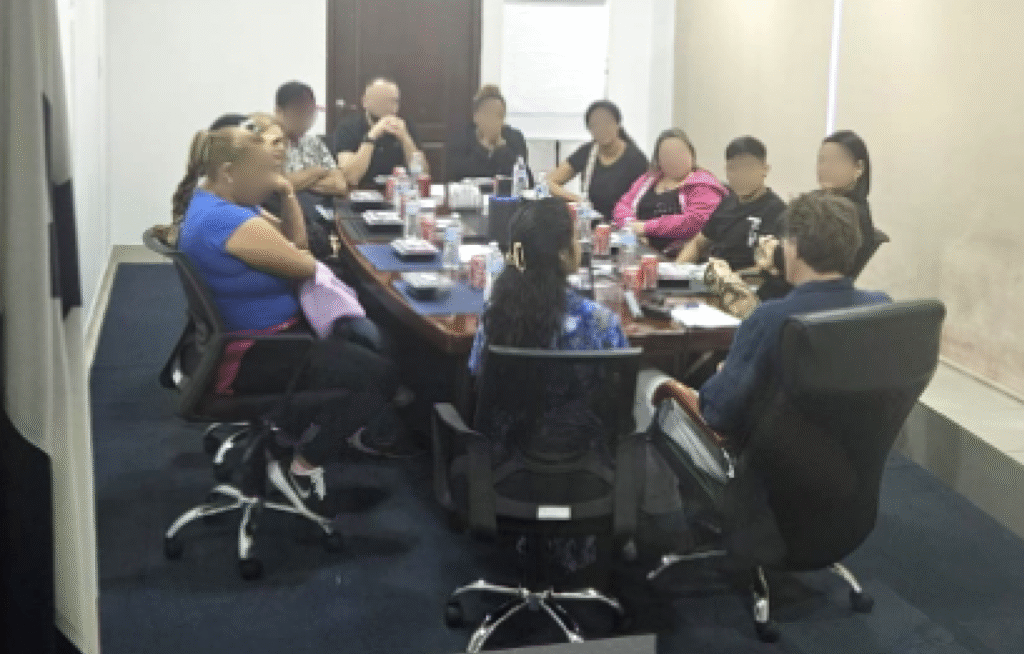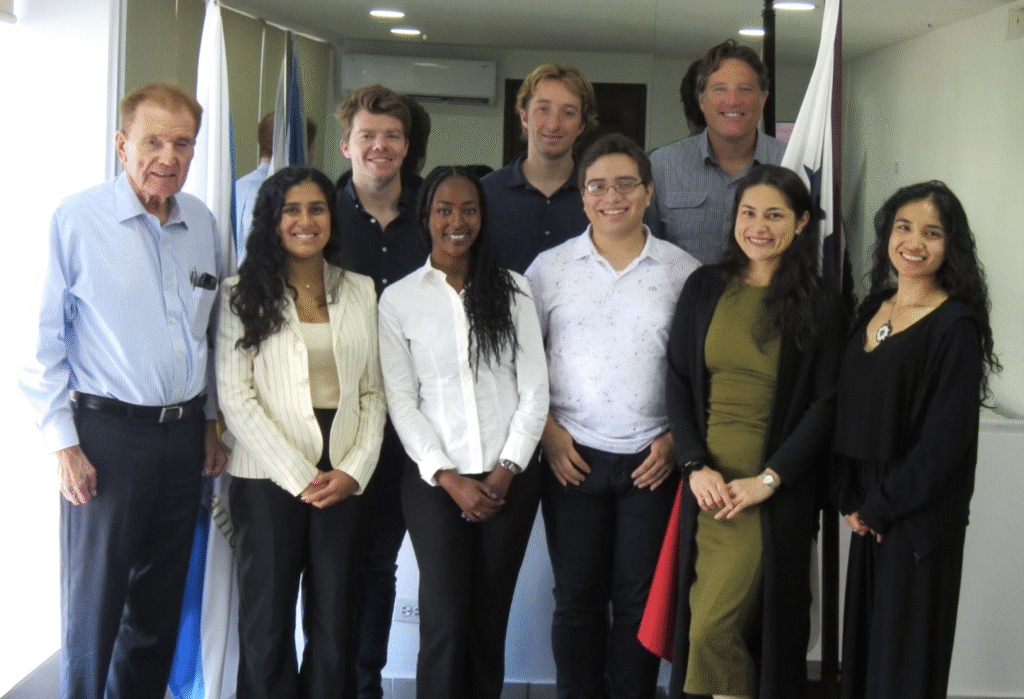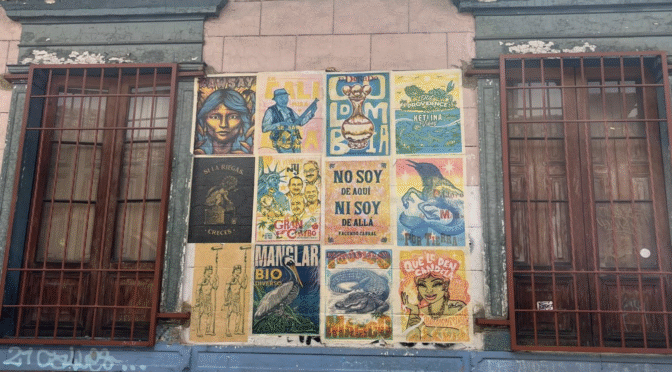By P. Salomé Valdivieso Santillán, Graduate student at the UT Teresa Lozano Long Institute of Latin American Studies
Our research project began with the aim of studying how different birthright nationality laws shape migrant integration in four diverse settings: Panama, Colombia, the Dominican Republic, and the United States. These countries differ not only in terms of language, policies, and economies, but also in the levels of inclusion towards migrants, which significantly impact how we conceptualize the south-north divide. The United States, for instance, grants citizenship to anyone born on its soil, while Colombia and the Dominican Republic impose stricter conditions that can leave children of migrants in legal limbo. Panama is a rare case, given the antecedents of the “Crisol de Razas” (melting pot) policies, where a melting pot ideology, similar to that of the United States, has been established as one of the primary identity markers of the country.
When I first joined this multi-country project on migration and nationality laws, I knew I would be stepping into complex terrain given the current state of migrant rights in the United States. What I did not fully expect was just how personal, dynamic, and sensible the journey would be, both as a researcher and as someone who left my native country, Ecuador, nine years ago. From the streets of Panama City to the boulevards of Bogota, a democracy research project ultimately became a journey of self-reflection that helped me better understand how to produce scientific knowledge with empathy and a shared sense of humanity.
During these six weeks of the summer internship, we focused on diving into the experiences of migrants in Panama and Colombia. Working with CID Gallup, we were able to expand our research started at the University of Texas from a programmed qualitative analysis to a more exhaustive quantitative survey, thanks to their access to worldwide data on migration patterns and a wide range of experts in the field.

As someone who has crossed borders in pursuit of education and better economic opportunities from those in my home country, I’ve often found myself navigating unfamiliar systems, immigration paperwork, visa renewals, and the silent weight of not fully belonging. When we started this project, it was not hard to empathize with the stories shared by migrants who, despite their long tenure in these countries, still face discrimination on a personal and political level. Their experiences varied from xenophobic comments on the street, being discriminated against at work, and not being able to access education or the healthcare system due to a lack of legal citizenship.
Although the richness of this project lies in its multi-methodological approach, as we do not rely solely on a single data point or perspective, the highlights of the study for me were the in-depth interviews and focus group discussions. This blend allowed us to capture both breadth and depth, which is essential when studying something as personal and intimate as the sense of belonging someone has in a particular setting.
Some of the stories that impacted me the most are, for example, the story of a migrant woman in Panama, who is navigating temporary protection statuses while waiting to hear if their children will be recognized as citizens. In Colombia, we met Venezuelan migrants who are trying to rebuild their lives despite limited access to formal nationality for their children, as they work in the informal sector and strive to organize themselves to secure a better salary. In each place, our work involved not only collecting data but also understanding the social and emotional fabric of migration, what it feels like to build a home in a country that may or may not officially recognize your existence.
Another particularly moving moment occurred during a focus group in Bogotá, where a father of six from Venezuela shared how, after organizing his coworkers to form a collective to demand better rights, his leadership was not recognized because he lacked the necessary legal paperwork to remain in the country. Because he didn’t have a piece of paper with his name stating that he was allowed to stay, he could not access a bank account, a requirement for being the leader of his newly formed organization.

The opportunity to work on a democracy assistance project with such tangible stakes has been incredibly humbling. At its core, our research asks: What makes people feel like they belong? What legal frameworks support that feeling, and which ones undermine it? And perhaps more importantly, how can democratic institutions respond?
Our team has had to navigate not only methodological challenges, such as coordinating fieldwork across countries with different political climates, but also ethical ones. Many migrants live in precarious legal or economic conditions, and earning their trust requires transparency, cultural sensitivity, and a commitment to confidentiality. Despite these challenges, I have come to realize that research, when conducted effectively, can be a form of accompaniment: we are not just collecting stories, but bearing witness to forms of resistance and persistence that transcend bureaucratic boundaries.
Professionally, as someone trained primarily in qualitative methods, participating in a project that integrates quantitative surveys and comparative political analysis has expanded my research toolkit. I have learned the primary skills necessary for designing survey instruments, coding responses, and interpreting complex data in large-scale surveys, all while maintaining a human-centered perspective. These experiences have helped me appreciate the work that public opinion data collection companies do in their everyday work. After bearing witness to the hard work that call center survey workers, coders, and validators do, I realized that even quantitative methods are influenced by human interactions. From the people who make almost a hundred calls per day, to those who work in the field conducting door-to-door surveys, to those analyzing and validating phone-call surveys, each member of the team requires discipline and a level of enthusiasm to continue with a job that, at times, is just regarded as mechanical and simple.

Reflecting on my role, I wondered how or if it is valuable to bring a personal perspective to this work. As a migrant, I may carry analytical insight and lived experience; the stories we encountered showed me that ‘the migrant experience’ cannot be summed up as a homogeneous categorical label. Ultimately, democracy as a set of institutions or laws is at the core of how people interact in the place they live and choose to call home. This research revealed that democracy is not experienced by every migrant at the same level, and its promise of belonging is not entirely fulfilled for all, particularly for those lacking economic resources or a preexisting safety network that can help them navigate the challenges of immersing themselves in a new country.
After the summer, as we explore how to conduct our study in the challenging contexts of the United States and the Dominican Republic, what keeps me excited is thinking about how our findings might contribute to the broader conversation on democracy and migration. Nationality laws are more than just administrative rules. They’re instruments of inclusion or exclusion, tools that can either reinforce or challenge structural inequality. And in a time when democratic backsliding and anti-immigrant sentiment are on the rise, understanding how to build genuine belonging is more urgent than ever.

